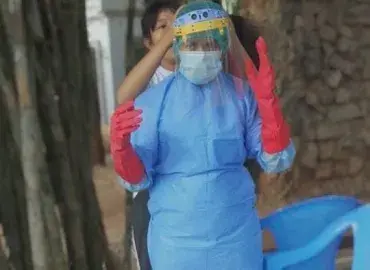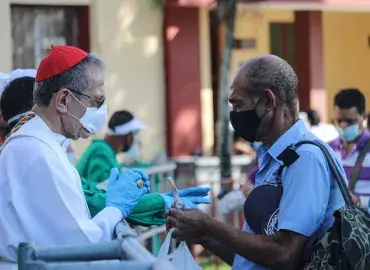Religious communities are on the front lines of responses to the COVID-19 pandemic, preventing the spread of infection and supporting the most vulnerable groups in society. The International Dialogue Centre (KAICIID) is offering small grants for short-term initiatives for organizations and individuals in the Arab Region, Myanmar and Nigeria responding to the pandemic, particularly through an interreligious approach.
KAICIID is calling for proposals for projects that enhance the role of interreligious dialogue in responding to COVID-19 and promoting public health.
Priority consideration will be given to interfaith initiatives focusing on community engagement and awareness raising amongst vulnerable groups. These initiatives should address the effects of the crisis in various fields such as education, unemployment, psychological support, combating social stigma and domestic violence.
Eligible projects include:
- promoting the role of diverse religious leaders and institutions as active partners along with policymakers, governments, and international institutions to confront the pandemic;
- enhancing the role of dialogue in responding to the pandemic and promoting public health;
- providing support and empowering vulnerable groups such as the elderly, people with special health conditions, women, children, and refugees;
- disseminating information and training on the virus, hygiene, prevention etc.;
- tackling mental health issues and responding to the growing problem of domestic violence in times of quarantine;
- countering stigmatization, hate speech and fake news in the context of the pandemic;
- fostering social cohesion by building bridges between diverse religious, ethnic, political and regional communities;
- promoting intergenerational cooperation, youth engagement, care for the elderly and women empowerment.
Preference will be given to innovative approaches and projects that empower women and youth. The project must be completed in 2020.
When the COVID-19 pandemic started, Zaw Zaw Aung’s first thought was how the disease might put further strain on already…
A public health tragedy, an economic disaster, a crisis that has ripped communities apart — the global trauma of COVID-19 is…
During the course of the pandemic, religious leaders have often found themselves on the frontlines of the global health crisis…




